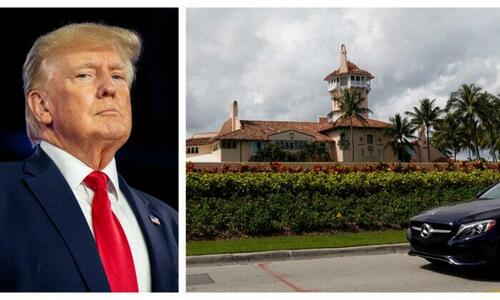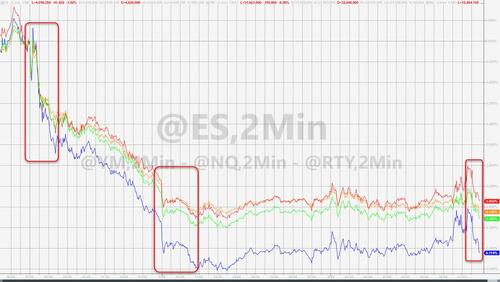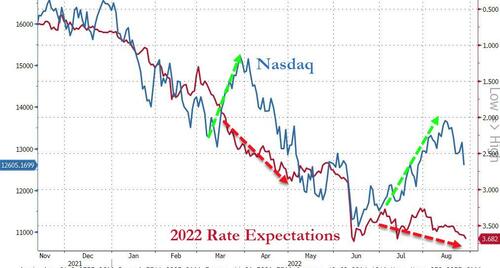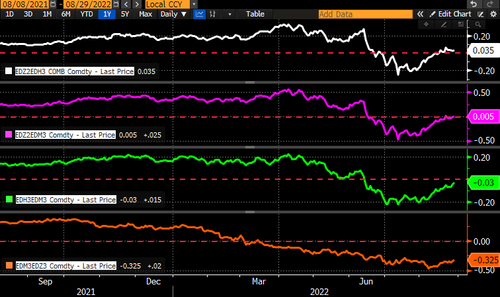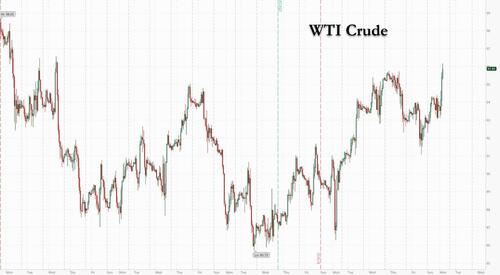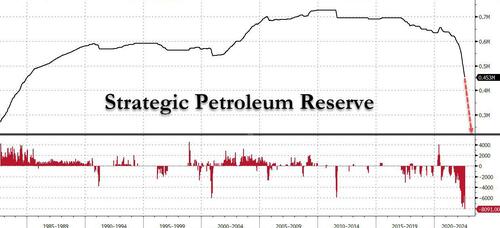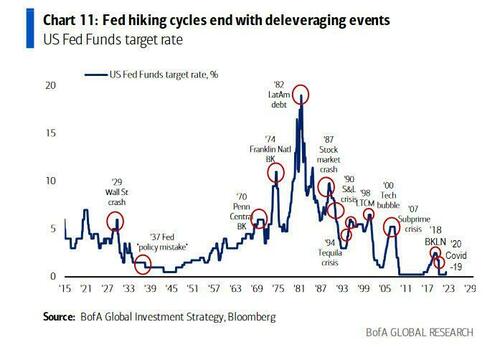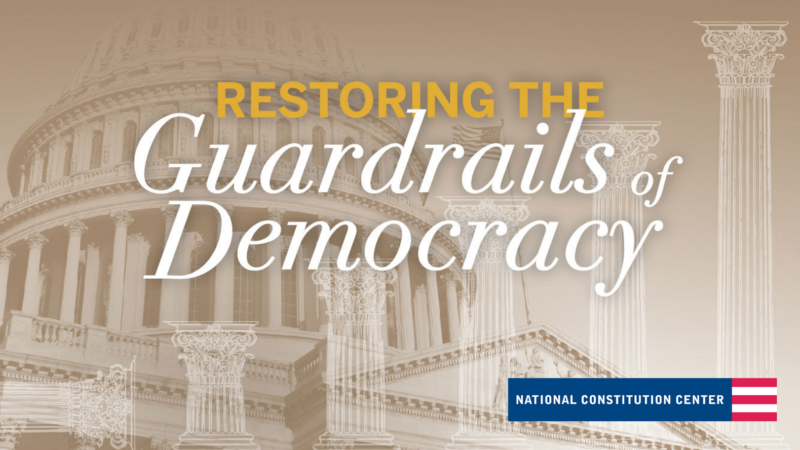
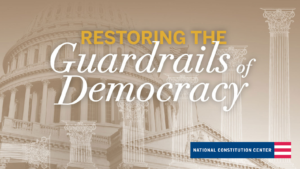
The acute crisis confronting American democracy right now is caused by a movement within one of the nation’s two major political parties. This movement is appropriately called “election denialism”—meaning that its adherents are willing to deny the lawfully determined outcome of an election if their candidate is the one who lost. The election denialist movement within the Republican Party, led by former president Donald Trump, is seeking to gain control over the institutions and procedures that determine the outcome of future elections. If election denialists prevail in this effort at taking control, self-government—whether one calls it “republicanism” or “democracy”—will no longer be possible. Ultimately, self-government depends on the lawfully determined winners of elections taking office based on those electoral results, and election denialism strikes at the heart of that most basic premise.
The effort to protect the Republic from election denialism should not be viewed as a partisan endeavor. Liz Cheney, among others, is correct when she exclaims that safeguarding the Constitution and its commitment to a “republican form of government” will require Democrats, Republicans, and independents of good will to join forces. As our contribution to the NCC Guardrails of Democracy project explained, democracy protection requires reforms along three dimensions. First, and most immediately, there needs to be revisions to the rules that govern the declaration of winners in presidential elections. Second, there needs to be structural reforms to the nation’s electoral processes to prevent election denialists winning races even when a majority of the electorate would prefer other candidates. Third, there needs to be carefully tailored adjustments, consistent with the First Amendment, that deter election denialists from spreading intentional falsehoods about election results. What follows is an overview of these three points.
Electoral Count Act Reform. The good news is that a bipartisan group of Senators, led by Susan Collins and Joe Manchin, have developed a revision to the dangerously antiquated Electoral Count Act of 1887, which was exploited for partisan purposes on January 6, 2021 (among other recent presidential elections). Indeed, the exploitation of this outdated and convoluted statute by election denialist allies of Trump is what set the stage for the insurrectionary riot at the Capitol that delayed the counting of the electoral votes in the 2020 election. The Collins-Manchin bill, while not perfect (what legislative endeavor ever is?), would fix the flaws in the 1887 law and significantly reduce the risk of election denialists negating the lawful winner of a future presidential election. The Collins-Manchin bill does this by requiring Congress to accept whatever the courts determine to be the true outcome of the presidential election in each state according to the applicable law when the ballots are cast. Even if election denialist officials in a state attempt to subvert the true result, Congress must abide by what the courts say and not whatever any election denialists do. The prospects for the Collins-Manchin bill passing Congress are good, given the level of bipartisan support it already has received in the Senate. But until the bill is enacted in the law, presidential elections remain dangerously vulnerable to subversion at the hands of election denialists. Thus, doing whatever it takes to get the Collins-Manchin bill across the legislative finish line must remain the most urgent electoral priority.
Securing the Will of Electoral Majorities. Just because an election denialist candidate wins a partisan primary and then goes on to win the general election, it does not mean that the election denialist is the candidate most preferred by a majority of the electorate. This point is not well-understood, but it needs to be to avoid election denialists holding office even when a majority of voters would prefer someone else. Right now, election denialists are able to exploit the features of the nation’s prevailing electoral system that enable candidates oppose by a majority of voters to win partisan primaries, often with less than a majority of votes in the primary, and then win the November general election because the plurality-winner rule in November prevents meaningful competition from anyone other than the nominee of the opposing major party. Altering the structure of electoral competition, so that the will of the majority can prevail, needs to be a top priority in order to counteract the threat of election denialism prevailing even when a majority of voters do not want it to.
A few pending midterm races illustrate this point. In Arizona, election denialist Kari Lake narrowly won the Republican primary with 48%, less than a majority. Her main competitor, Karrin Taylor Robson, was not an election denialist, and perhaps might have won the GOP nomination if a runoff or “instant runoff” using ranked-choice voting had been used to identify the majority preference of the state’s GOP voters. In any event, Taylor Robson likely would be more preferred by a majority of all the state’s voters—those voting in the November general election—than the election denialist Lake. This presumption is based on the common-sense observation that virtually all the state’s Democrats would prefer non-denialist Taylor Robson to denialist Lake. Therefore, although a majority of the state’s November voters might prefer the Democratic nominee Katie Hobbs to either Republican, Taylor Robson or Lake, it is also possible that in this closely divided state a majority of the November voters this year would prefer either Republican to Hobbs. But if Hobbs doesn’t win, Democratic voters would rather have Taylor Robson than Lake, and given that almost half Republican voters also preferred Taylor Robson to Lake, it seems undoubtedly true that a majority of all the state’s voters would want Taylor Robson rather than Lake to become the state’s governor.
Yet, given the nature of the electoral system, the November race will be just Lake versus Hobbs, with Taylor Robson eliminated in the partisan primary. Lake thus might beat Hobbs and become Arizona’s governor, even though a majority of Arizona voters in November would prefer Taylor Robson over Lake. This is how the majority of the state’s voters’ actual preference can be defeated in the existing electoral system, and this is what must change to prevent election denialists from taking office even though a majority of voters would favor a different outcome.
Other midterm races illustrate the same point. Election denialist J.D. Vance won the Republican primary for Ohio’s U.S. Senate seat with less than a third of the votes, 32.2%, beating among other candidates non-denialist Matt Dolan (who came in third with 23.3%). Vance might win the November election against Democratic nominee Tim Ryan, even though a majority of Ohio’s November voters might prefer non-denialist Dolan to Vance. Again, the partisan primary knocked Dolan out of contention even though he would be the candidate that the majority of November voters would most prefer. Something similar could also be true in North Carolina’s U.S. Senate election. There, election denialist Ted Budd won the GOP primary, beating non-denialist (and former governor) Pat McCrory. Budd might beat Democratic nominee Cheri Beasley in November, even though a majority of November’s voters in the state likely would prefer McCrory to Budd.
In this way, election denialists can come to power after the November elections, in governorships and U.S. Senate seats among other major offices, even though November voters in all these states would have preferred a non-denialist alternative, who got boxed out by the partisan primary. It is imperative to change this anti-majority feature of the prevailing electoral system, and it is possible to do so through a version of ranked-choice voting that conforms to majority-maximizing electoral principles. Known as Round-Robin Voting, because it resembles a round-robin sports tournament in which each competitor faces one-on-one against every other competitor, this version of ranked-choice voting would prevent election denialists from winning office whenever they are not the candidate most preferred by a majority of all the voters in the electorate. If we want to safeguard democracy from election denialism, we need to pursue this reform (among others).
Combatting the Spread of Intentional Falsehoods about Election Results. What is most brazen about the so-called “Big Lie”—that the 2020 presidential election was stolen from Trump and that Joe Biden was not the rightful winner pursuant to the rules for conducting the election—was that at least some of the leading perpetrators of this Big Lie knew it to be false but spread the falsehood anyway. Rudy Giuliani, Trump’s lead lawyer for contesting the outcome of the 2020 election, admitted that they had no evidence to support claims they were making. Others, including Trump himself, also surely must have known the Big Lie was false if, as Attorney General Bill Barr observed, they were maintaining a connection to reality; only by being utterly detached from, or in defiance of, reality would it be possible to claim, as Trump and his supporters have, that Trump would have won the election were it not for massive fraud inflating Biden’s vote totals beyond the ballots cast for him by valid voters.
The First Amendment’s freedoms of expression are essential elements to self-government. But the First Amendment historically has never been understood to protect the “knowing lie,” and even the U.S. Supreme Court’s recent case involving the false claim of being a Medal of Honor recipient does not go so far as to protect all intentional falsehoods from well-tailored and well-justified statutes aimed precisely to protect the political process from deliberately destructive disinformation. Although the idea of using criminal prosecutions to counteract intentionally false election denialism must proceed with great caution, it is necessary to restore a political culture that causes professionals like Rudy Giuliani to exercise an appropriate measure of self-restraint in their public discourse about adverse election outcomes. Going forward, no one should think they are entitled to spread intentional untruths like the Big Lie with impunity; as has become abundantly clear since 2020, this kind of deliberate dishonesty about who really won the election does grave damage to the capacity of the country to conduct elections as a core component of republican self-government, and consistent with the First Amendment the Republic is entitled in the interest of self-preservation to take carefully drawn steps to protect itself from this kind of damage.
Additionally, social media companies have no First Amendment right to simultaneously elevate intentional falsehoods on their platforms and remain immune from the liability that intentional falsehoods cause. No other type of publisher who exercises control over what they publish is entitled to such absolute immunity from their publication choices. Under the famous New York Times v. Sullivan standard, newspapers are liable under defamation law for the intentional falsehoods they print. So too are TV and cable broadcasters, for the intentional falsehoods they disseminate. The same should be true for social media companies—unless those social media companies exercise no control over the content of the expression that flows through their platforms, in which case then the companies should be immunized from liability in the same way that an old-fashioned telephone company would be. But as long as social media companies wish to profit from amplifying some messages over others, then they should be liable under defamation (and, where applicable, other forms of tort law) for the damages that their amplification of intentional falsehoods cause.
The Synergy of These Three Steps. Pursuing these three dimensions of reform cannot guarantee that American democracy will withstand the serious threat it currently faces from election denialism. Unfortunately, there can be no such guarantee if a majority of Americans actually become converted to the election denialism cause. But, thankfully, election denialism has not taken hold among the public to this extent, at least not yet. Thus, as long as election denialism remains a minority rather than majority position among the American electorate as a whole, these three dimensions of reform—especially if undertaken in combination, so that they can reinforce each other’s effectiveness—can go a long way to safeguarding the right of self-government that, since the Declaration of Independence itself, has been the nation’s foundational principle.
The post Three Reforms to Protect Democracy from Election Denialism appeared first on Reason.com.
from Latest https://ift.tt/NqAlI7p
via IFTTT
